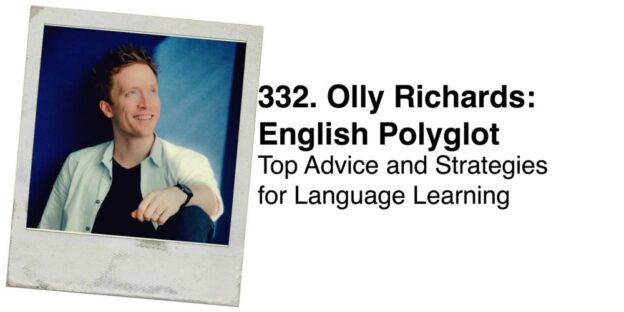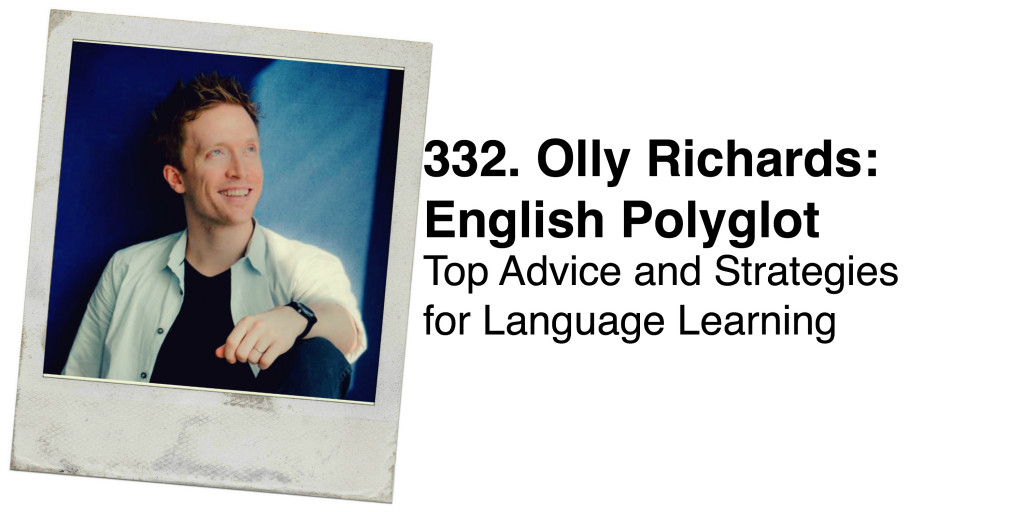Today I’m talking about Pokemon Go. It’s a global phenomenon and there are lots of things to say about it. It’s not just a stupid game, there’s a lot more to it than that. So, in this episode I’m going to describe Pokemon the game, then talk about Pokemon GO, including what it is, how it works, what people are saying about it, why it’s so significant, what some of the good points and bad points are, and what this might mean for the future.
![]() [DOWNLOAD]
[DOWNLOAD]
Introduction
It’s the craze that’s sweeping the world. Pokemon Go was released as a downloadable app for iPhone and Android about 3 weeks ago and suddenly millions of people around the world are playing it, everyone’s talking about it and the app is currently the #1 download on the iOS and Google Play app stores. It’s threatening even Twitter in terms of its number of active users. Just a few days after the release of the game, which can be downloaded onto your smartphone free, Nintendo’s stock market value soared, rising by a massive $11 billion. The number of downloads of the Pokemon Go app is estimated at over 100 million.
I wonder if it has arrived in your country yet. I wouldn’t be surprised if you’ve either heard about it, seen stories about it online, seen people playing it in your area, or have actually downloaded and played the game yourself. Some people are addicted to it and can’t stop playing it. Other people just can’t stand it and think it’s a load of complete nonsense.
Just the other day I went out for a drink with my wife and we counted 11 people playing Pokemon Go just in the streets near our house. On my lunch break from work the other day I looked around the little garden area where I sat with my sandwich and noticed about 3 people who were obviously playing it. Even some of my students in class were playing Pokemon Go during lessons. Apparently, the British Council is a Pokemon Gym, where other Pokemon players can get together to challenge each other to Pokemon battles. Next time you’re out and about, look for small groups of people wandering around staring at their phones. That happens a lot anyway, but it’s an even more common sight to see at the moment. If you get the chance to glance at their screens, you might see them attempting to throw little red and white balls at wild little creatures that they can see. They’re probably playing Pokemon.
If you don’t really understand what I’m talking about here, don’t worry because I’m going to explain it all as clearly as possible in this episode, while also discussing some of the positive and negative aspects of this game.
Wherever you stand on this new phenomenon – maybe you think it’s brilliant, you might think it’s the end of the world, or maybe you have no opinion about it at all. In any case I think there’s no arguing that this game represents something significant about global culture. It’s being played everywhere – I’ve even seen photos of it being played in war-torn parts of Syria. Apparently the whole world is captivated by the desire to capture Pokemon. It has arrived with some controversy, as we will see.
The game itself might be a flash in the pan – just a brief craze that will last for a summer and then disappear – in fact I’ve come to the subject a little bit late because the general media buzz around the game has probably peaked now, but it does represent an interesting development in global culture – in gaming, technology, lifestyle, how we interact with public spaces and also ways in which huge companies are collecting and using our data. It’s definitely worth talking about.
Is this just a fun, social game or is it part of some sinister plot by corporations intent on gaining access to yet more of our personal data?
That’s what I’d like to talk about in this episode. If you’re a vocabulary hunter – listen carefully to hear the right words and expressions we use when talking about Pokemon and the issues surrounding it.
I should state right now that this story is developing pretty quickly and by the time you listen to it the world of Pokemon might have changed a bit, with possible updates to the app and other peripheral products that might come onto the market. Also, I am not the world’s Pokemon expert or anything, but I think I know enough about it to be able to talk on the subject in this episode. You might be more familiar with the ins and outs of Pokemon than me. If you’re an advanced Pokemon player then feel free to get into the comment section to give your opinion or add any details I might have missed. Also, if you’re new to Pokemon I want to know what you think as well.
Let’s get started
1. What is Pokemon?
– We know from my conversation with Alex Love that Pokemon is a portmanteau word from Japan which means “pocket monster”.
– It’s a franchise owned by The Pokemon Company (a sort of consortium of three companies Nintendo, Game Freak, and Creatures.) The first version of the franchise was a Game Boy game created in Japan in 1995. Pokemon Red and Yellow, then Blue and then Silver I think. Then there were TV shows, movies, trading cards and a Monopoly game. It has massive levels of appeal and a generation of kids grew up playing it. I was a bit old for it because by that time I’d moved on to more grown-up stuff like GoldenEye and Tekken and stuff like that (yes, I was still playing computer games).
– First time I heard about it.
– Playing cards in Liverpool HMV. “Have you got any Pokémon cards??”
– The principle of the game, as far as I understand it.
2. What is Pokemon Go?
– How the app version of the game works
– Pokestations – I think these are points of interest from Google Maps – interesting spots that I guess a lot of people have taken photos of or something – some point of interest. These have been converted into Pokestations in the game. If you go there you can collect more Pokeballs. For example, there’s a fountain outside my building and that’s a pokestop, then there’s a sandwich bar on the street, that’s a pokestop. At the top of the street there is a kid’s merry-go-round and that’s a pokestop too. ON the map you see different pokestops and it encourages you to go and visit them. When you get there you click on the pokestop in your phone and it shows you a photo of the thing. It could be another landmark, like a plaque on a wall with a bit of local information on it – for example a plaque that shows you that Picasso used to live in the building. There’s one of them near me too. That’s quite cool because you might not have discovered it otherwise, but to be honest I don’t think Pokemon can really be credited with teaching people about their local area. Honestly, if you find local points of interest through Pokemon you’re probably not that interested in the point of interest. Realistically, how long will a Pokemon player stop to read a plaque about Picasso when they have other Pokemon in the area to catch. In fact, it could be considered disrespectful to the landmark to create a pokestop there because what happens is that you just get these groups of people turning up, not looking at the landmark, just standing around like PokeZombies with their heads in their phones.
– Controversy – there have been a few incidents in which people have got very angry with Pokemon players playing at certain locations. For example, at war memorials where you should be very respectful. Standing around catching Pokémon at a World War 2 memorial is not really appropriate I think, especially if players are wandering across the monument, or standing on burial sites. Apparently Pokémon has been banned at The Auschwitz museum in Southern Poland, which is the site of one of the biggest WW2 Nazi death camps has asked Niantic Labs to block Pokemon users from playing there, after there were complaints from people who saw a lot of people playing the game while visiting. That’s totally fair I think – it’s really disrespectful to be playing Pokemon at a place like that.
– Then there are Pokemon Gyms where you can battle with other Pokemon trainers and develop your Pokemon. As I said, the BC is a Pokemon gym apparently. If you beat all the other Pokemon trainers there you’ll be the owner of the gym and your winning Pokemon is like the master of the gym, and I think your Pokemon is then displayed on the roof of the gym when you check the map in the app. So, if you look around you can see some gyms in the distance, with huge monsters guarding them.
– Other content too – there may be other interesting features within the game – other locations and interactive elements at various locations.
– In-app purchases.
– Venues might use it as a way of attracting people. “Lure modules” can be dropped at certain locations to attract higher numbers of pokemon (and then users who want to catch them)
What’s the appeal?
I think we are wired for collecting things – it’s the impulse to be hunter/gatherers. That’s a basic human instinct – to go out and find things, search the area, look for treasure, look for food or resources, keep a collection, build strength, even breed and rear animals which you can use as assets in your life, compete with other people. I suppose this comes from the many hundreds of years that humans evolved as hunter-gatherers or something, except now those instincts are what drives our interest in these games, which we play for their own sake. I don’t think we can gain anything material from these things. I guess only business owners can benefit if people are being lured to your businesses because of it. Then there’s the game makers who obviously are making money from in-game purchases, the general brand value, share-price value and the sharing of data collected from the game. There are lots of revenue streams.
Also there’s the novelty of the augmented reality. It’s pretty engrossing and captivating.
The future?
This is the first really big augmented reality game. I expect we will see more and more games that will use augmented reality, which essentially means that the real world will be the playing field in which the game is played, instead of going around in a virtual world, the game world is somehow mapped onto the real world. Now if we run with this idea, this could mean that in the future more people will be going around in the street playing a game. They might be interacting with the physical world around them, but in ways that you can’t see if you’re not playing the game. If you add different technology into that, it could be a huge step. Imagine using Oculous Rift or some kind of 3D headset but you’re not walking around the game world, you’re walking around the real world but with augmented reality. So, potentially we might be able to walk around with a headset, interacting with the real world, but seeing it in a completely different way. From the inside you might be battling with aliens in your street, or collecting treasure in the park, or possibly just touching objects in the real world in order to achieve things. In the game it would be amazing because there would be actual physical feedback from playing the game. But from the outside, you’d look like you’re on acid I expect. You’d look like you were on magic mushrooms – wandering around reacting to things that aren’t there. There are also the obvious safety issues with that. Also, perhaps it might be possible to play the game in the real world – using the real world map, while sitting at home on your sofa. That might mean that you’re controlling a drone which is flying around, or travelling around on wheels in the real world, while you are either watching a screen at home, or sitting at home wearing a 3D headset which essentially allows you to see from the perspective of your drone as it travels around outside your house or somewhere else in the world, interacting with real things and people. The mind boggles!
It could also be used not for gaming, but for general life – e.g. sending your drone robot to the supermarket to collect your shopping or to pick up your kids or something. We’re really not that far away from that sort of thing, but there are of course loads of legal issues that go along with that – relating to the safety of it, and who is responsible for what these drones do, or what people do when they’re playing an augmented reality game, and the implications of letting drones operate in public spaces – that’s related to privacy and health hazards and so on.
It’s certainly pretty crazy – and Pokemon Go is just the first step in this direction. We might not see it in the next 2-5 years, but in 10-15 years we might see this sort of thing. God knows what the world will be like then. I will probably have kids, possibly teenage kids at that time. I can’t imagine what kind of world they’ll be living in. They’ll probably be robo-kids, let’s face it. Will that be good or bad? Who knows.
3. Arguments for
– exercise (my student walked 20k in 2 days)
– a way to explore areas. Imagine combining it with tourism. You can discover interesting landmarks in your area.
– it’s harmless fun. It’s just fun! What’s wrong with that.
…or is it?
4. Arguments against
– safety (not looking where you’re going, playing while driving, going into areas that are not safe, muggings – slightly paranoid maybe?)
– bizarre social patterns and human behaviour – e.g. large groups of people all stampeding across a field to catch a pokemon, not looking where they’re going.
– trespassing, or nuisance
– personal data – it’s connected to your google account – Pokemon Go had full access to your Google account. This made it pretty exposed to a hack – anyone with access to the game’s servers would be able to access everything in your google account and yep, that means your email, photos, navigation history and so on. They’d be able to know where you live and what you look like and possibly stuff like your bank details and other sensitive info that you have put into emails. However, Niantic (the game developer) has released a statement that they’ve changed the app so that it just requires basic info and not your full account. Google also say they’re working on limiting permissions to basic profile data. Still, it seems pretty dodgy right? And this is the same story we’ve seen from other apps and I think it is a major part of modern life. Personal data – it’s a hugely desirable thing for companies and has become a precious commodity in business. Here’s the pattern: Social networks or other lifestyle apps offer us addictive and immersive experiences and services. We become hooked on them and engrossed by the speed at which we can do things, like play fun games, discover information, publish our photos or whatever. But while we’re distracted but that, the app collecting our personal data, claiming rights over the information we publish or allow access to and is then using all of that data as an asset which they can sell – to god knows who! People want our data though, presumably to be able to create fine-tuned marketing campaigns to get us to buy things or do things. Now, this is still a bit unsophisticated – you’ve heard me talk about how I find Google Ads to be stupid because they try to sell me shoes I’ve already bought. But in the future, who knows how sophisticated they will get when it comes to marketing to us, or using our own preferences. One day as our reality is more and more augmented by technology and the internet, we might find that our augmented version of reality are being shaped by the data that is collected about us. What I mean is that our reality could become mediated significantly by third parties that we don’t know, and who want to take advantage of us for their own profit. This is when the future sounds like some kind of science fiction nightmare in which even our sense of reality is manipulated so that we can be exploited by corporations. Perhaps that’s a bit paranoid, but the question is: Are we being too careless with our personal data? Are these apps just harmless games or are they more sinister than that? In Pokemon we are trying to “catch ’em all” but maybe for the companies that make these games it’s a case of “gotta catch all your personal data”.
– Google is mapping the world. At the moment, all public spaces are being mapped by Google. You can use Google maps and google street view to see an almost 3D version of the world. Since Pokemon Go is connected to Google, are they using our cameras to scan everything as we play the game? The app gives the game and Google access to your camera. Maybe they’re using the images to create scans of everywhere that we play the game, particularly the interiors of buildings, private spaces – including our homes. Maybe Google is using Pokemon to scan the interiors of our homes. It’s possible. This sounds a bit like a conspiracy theory, but it’s possible.
In the end, it’s about trust I think. Do you trust these companies? You might think – you’re crazy – Google wouldn’t use that data in ways that would harm us. But why do we automatically trust these companies? Who are they giving this data to? If it’s private companies, those transactions probably happen behind closed doors, not in a way that can be scrutinised by the public.
It’s not too crazy to imagine that our personal data, our images, even scans of the interior of our homes – all of these things could be being given to shady people that we don’t know and who don’t really care about us. In 50 years, who knows what the state of the world will be and who will be in power. I don’t like the idea that they might have all my info at their fingertips.
Technology is amazing. It could allow us to do so many incredible things. It has opened up the whole world to us, with the internet and everything. But it also could bring about massive levels of manipulation and limitations to people’s basic liberties. It would be ironic if the internet, which started out as this huge libertarian, open-sourced project, could ultimately be used as a way to keep everyone under control. I realise I now sound like a conspiracy theorist, because I’m just speculating, but it’s interesting isn’t it? It makes you think. It makes me a bit scared and I’m not sure where I stand on it.
A note on conspiracy theories – a lot of that is based on speculation, false logic, supposition and confirmation bias. Once you get the idea in your head that the world is controlled by shadowy, unknown powerful groups then it’s possible to interpret absolutely any phenomenon in the world as an extension of that. In reality, the world is probably a lot more chaotic and less sinister than we think. Pokemon Go is probably a little bit sinister – and that’s exaggerated by the fact that it appears to be a cute and innocent game, but I imagine that it’s no worse than just a little bit sinister. They want to get our data to sell it to marketing companies who are all desperately struggling to find ways of using it correctly. In the end, perhaps it will not be that bad and it’ll just be easier to buy shoes that you like. Either that, or we’ll all be enslaved by evil spider robots which steal all of our electromyography – they’ll steal all our body’s electrical impulses, so they can keep themselves alive in order to play Robo-Pokemon and feed batteries to their robot-children, like in The Matrix. Worst-case scenario.
5. Let’s play Pokemon Go! *Maybe in an episode soon – would you like that? Let me know*
WHAT DO YOU THINK? Leave your comments below :)



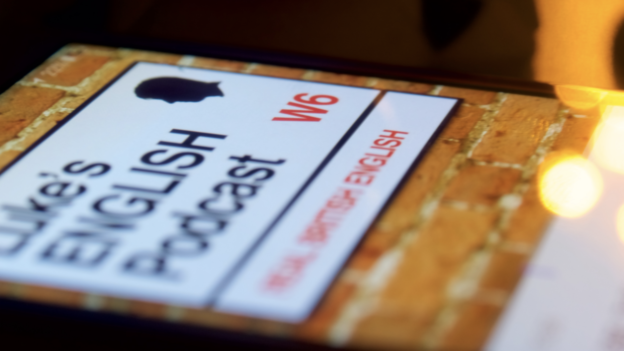




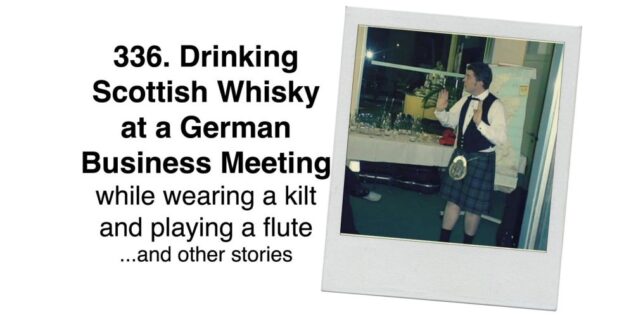
 italki
italki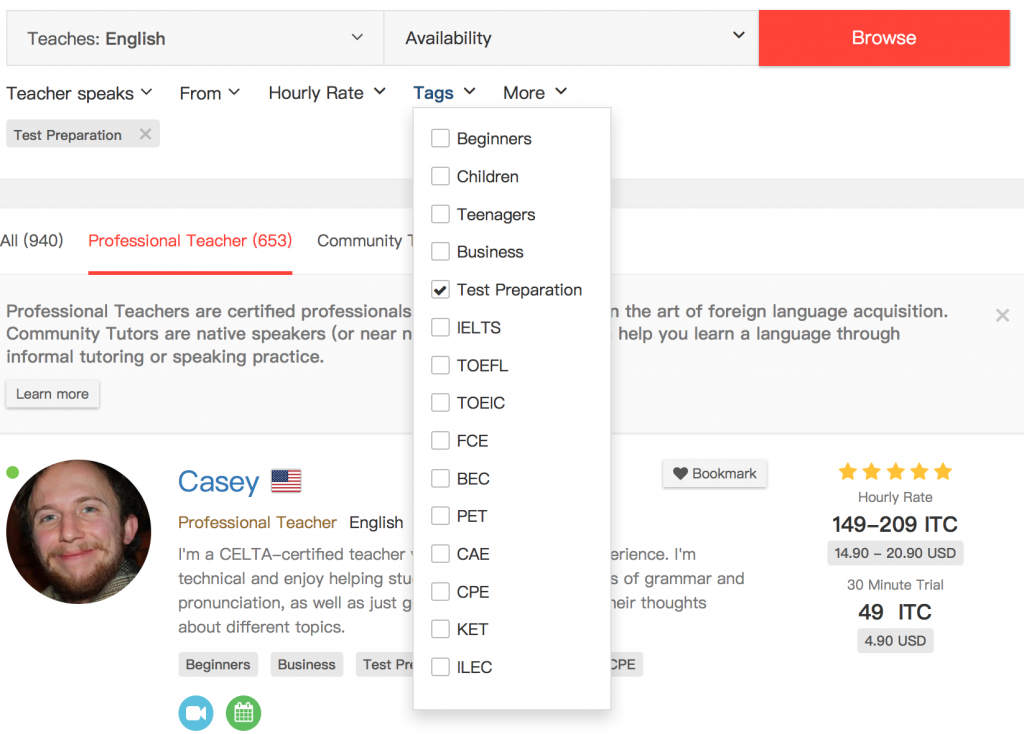
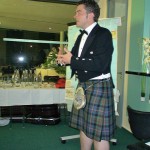

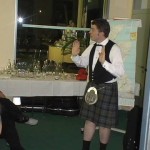
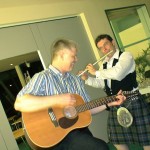
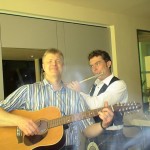
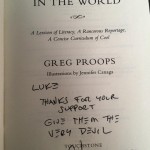
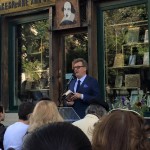

 A Note on Swearing in the Podcast
A Note on Swearing in the Podcast

